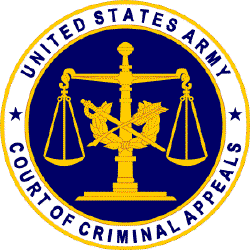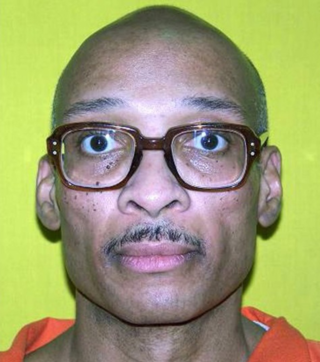A pardon is a government decision to allow a person to be relieved of some or all of the legal consequences resulting from a criminal conviction. A pardon may be granted before or after conviction for the crime, depending on the laws of the jurisdiction.
Probation in criminal law is a period of supervision over an offender, ordered by the court often in lieu of incarceration.
A writ of coram nobis is a legal order allowing a court to correct its original judgment upon discovery of a fundamental error that did not appear in the records of the original judgment's proceedings and that would have prevented the judgment from being pronounced. The term coram nobis is Latin for "before us" and the meaning of its full form, quae coram nobis resident, is "which [things] remain in our presence". The writ of coram nobis originated in the courts of common law in the English legal system during the sixteenth century.

Benjamin Piatt Runkle was an American military officer, Episcopal priest, and Freemason, who is noted as being one of the seven founders of Sigma Chi fraternity. Prior to joining the clergy, he served in the Union Army during the American Civil War. He served as Chief Superintendent of Freedmen's Affairs in Kentucky, and was plaintiff in the Supreme Court case Runkle v. United States. Runkle also twice served as trustee of Miami University.
Courts-martial of the United States are trials conducted by the U.S. military or by state militaries. Most commonly, courts-martial are convened to try members of the U.S. military for violations of the Uniform Code of Military Justice (UCMJ). They can also be convened for other purposes, including military tribunals and the enforcement of martial law in an occupied territory. Federal courts-martial are governed by the rules of procedure and evidence laid out in the Manual for Courts-Martial, which contains the Rules for Courts-Martial (RCM), Military Rules of Evidence, and other guidance. State courts-martial are governed according to the laws of the state concerned. The American Bar Association has issued a Model State Code of Military Justice, which has influenced the relevant laws and procedures in some states.
Jed Saul Rakoff is a senior United States district judge of the United States District Court for the Southern District of New York.
The Navy-Marine Corps Court of Criminal Appeals (NMCCA) is the intermediate appellate court for criminal convictions in the United States Navy and the Marine Corps.

In the United States military, the Army Court of Criminal Appeals (ACCA) is an appellate court that reviews certain court martial convictions of Army personnel.
Burdick v. United States, 236 U.S. 79 (1915), was a case in which the Supreme Court of the United States held that:
A pardon is an act of grace, proceeding from the power entrusted with the execution of the laws, which exempts the individual on whom it is bestowed from the punishment the law inflicts for a crime he has committed. It is the private though official act of the executive magistrate, delivered to the individual for whose benefit it is intended ... A private deed, not communicated to him, whatever may be its character, whether a pardon or release, is totally unknown and cannot be acted on.
In United States law, habeas corpus is a recourse challenging the reasons or conditions of a person's confinement under color of law. A petition for habeas corpus is filed with a court that has jurisdiction over the custodian, and if granted, a writ is issued directing the custodian to bring the confined person before the court for examination into those reasons or conditions. The Suspension Clause of the United States Constitution specifically included the English common law procedure in Article One, Section 9, clause 2, which demands that "The privilege of the writ of habeas corpus shall not be suspended, unless when in cases of rebellion or invasion the public safety may require it."

Clawson v. United States, 113 U.S. 143 (1885), was a case regarding a Utah territorial statute which authorized an appeal by a defendant in a criminal action from a final judgment of conviction, which provides that an appeal shall stay execution upon filing with the clerk a certificate of a judge that in his opinion there is probable cause for the appeal, and further provides that after conviction, a defendant who has appealed may be admitted to bail as of right when the judgment is for the payment of a fine only, and as matter of discretion in other cases, does not confer upon a defendant convicted and sentenced to pay a fine and be imprisoned the right, after appeal and filing of certificate of probable cause, to be admitted to bail except within the discretion of the court.

Ronald Adrin Gray is an American serial killer and rapist whose convictions include four counts of murder, one count of attempted murder and eight counts of rape. His crimes were committed when he was in the United States Army, stationed at Fort Bragg, North Carolina.
Griffin v. Illinois, 351 U.S. 12 (1956), was a case in which United States Supreme Court held that a criminal defendant may not be denied the right to appeal by inability to pay for a trial transcript.

The Habeas Corpus Suspension Act, 12 Stat. 755 (1863), entitled An Act relating to Habeas Corpus, and regulating Judicial Proceedings in Certain Cases, was an Act of Congress that authorized the president of the United States to suspend the right of habeas corpus in response to the American Civil War and provided for the release of political prisoners. It began in the House of Representatives as an indemnity bill, introduced on December 5, 1862, releasing the president and his subordinates from any liability for having suspended habeas corpus without congressional approval. The Senate amended the House's bill, and the compromise reported out of the conference committee altered it to qualify the indemnity and to suspend habeas corpus on Congress's own authority. Abraham Lincoln signed the bill into law on March 3, 1863, and suspended habeas corpus under the authority it granted him six months later. The suspension was partially lifted with the issuance of Proclamation 148 by Andrew Johnson, and the Act became inoperative with the end of the Civil War. The exceptions to his Proclamation 148 were the States of Virginia, Kentucky, Tennessee, North Carolina, South Carolina, Georgia, Florida, Alabama, Mississippi, Louisiana, Arkansas, and Texas, the District of Columbia, and the Territories of New Mexico and Arizona.
The Judge Advocate General's Corps, also known as JAG or JAG Corps, is the military justice branch or specialty of the United States Air Force, Army, Coast Guard, Marine Corps and Navy. Officers serving in the JAG Corps are typically called judge advocates.

The Taney Court heard thirty criminal law cases, approximately one per year. Notable cases include Prigg v. Pennsylvania (1842), United States v. Rogers (1846), Ableman v. Booth (1858), Ex parte Vallandigham (1861), and United States v. Jackalow (1862).

During the tenure of Morrison Waite as Chief Justice of the Supreme Court of the United States, the Supreme Court heard an unprecedented volume and frequency of criminal cases. In just fourteen years, the Court heard 106 criminal cases, almost as many cases as the Supreme Court had heard in the period from its creation to the appointment of Waite as Chief Justice. Notable cases include United States v. Cruikshank (1875), United States v. Reese (1875), Reynolds v. United States (1878), Wilkerson v. Utah (1879), the Trade-Mark Cases (1879), Strauder v. West Virginia (1880), Pace v. Alabama (1883), United States v. Harris (1883), Ex parte Crow Dog (1883), Hurtado v. California (1884), Clawson v. United States (1885), Yick Wo v. Hopkins (1886), United States v. Kagama (1886), Ker v. Illinois (1886), and Mugler v. Kansas (1887).
Clint Allen Lorance is a former United States Army officer who is known for having been convicted and pardoned for war crimes.
The president of the United States is authorized by the U.S. Constitution to grant a pardon for a federal crime. The other forms of the clemency power of the president are commutation of sentence, remission of fine or restitution, and reprieve. A person may decide not to accept a pardon, in which case it does not take effect, according to a Supreme Court majority opinion in Burdick v. United States. In 2021, the 10th Circuit ruled that acceptance of a pardon does not constitute a legal confession of guilt, recognizing the Supreme Court's earlier language as dicta.









